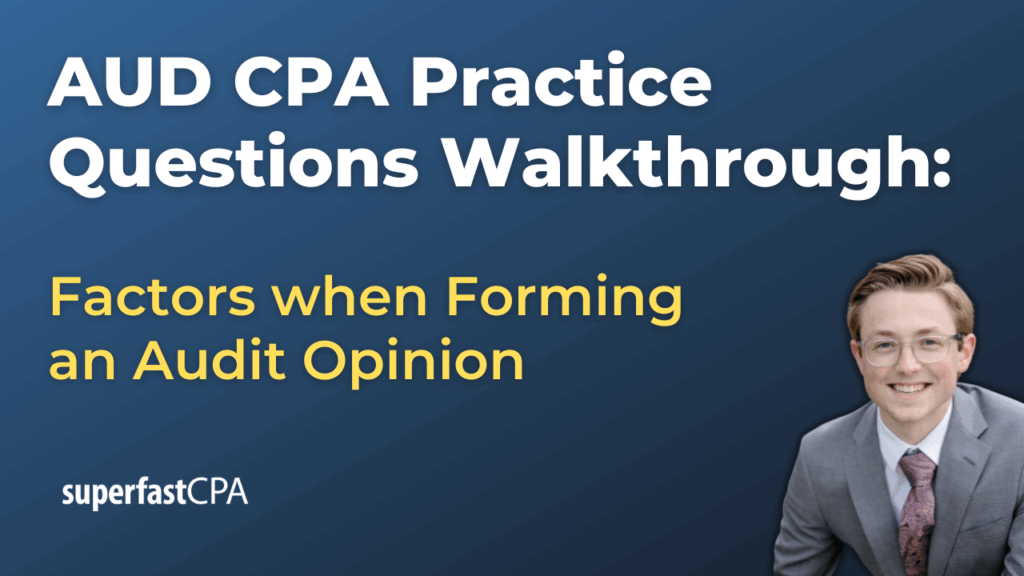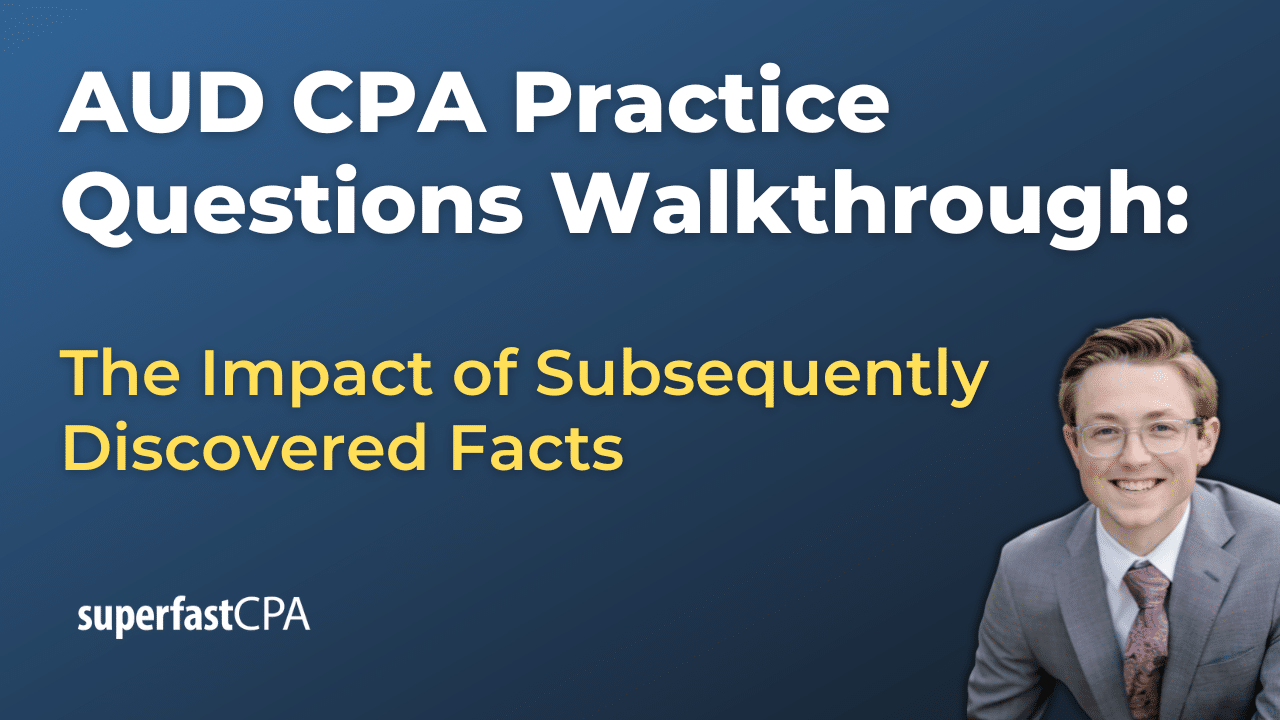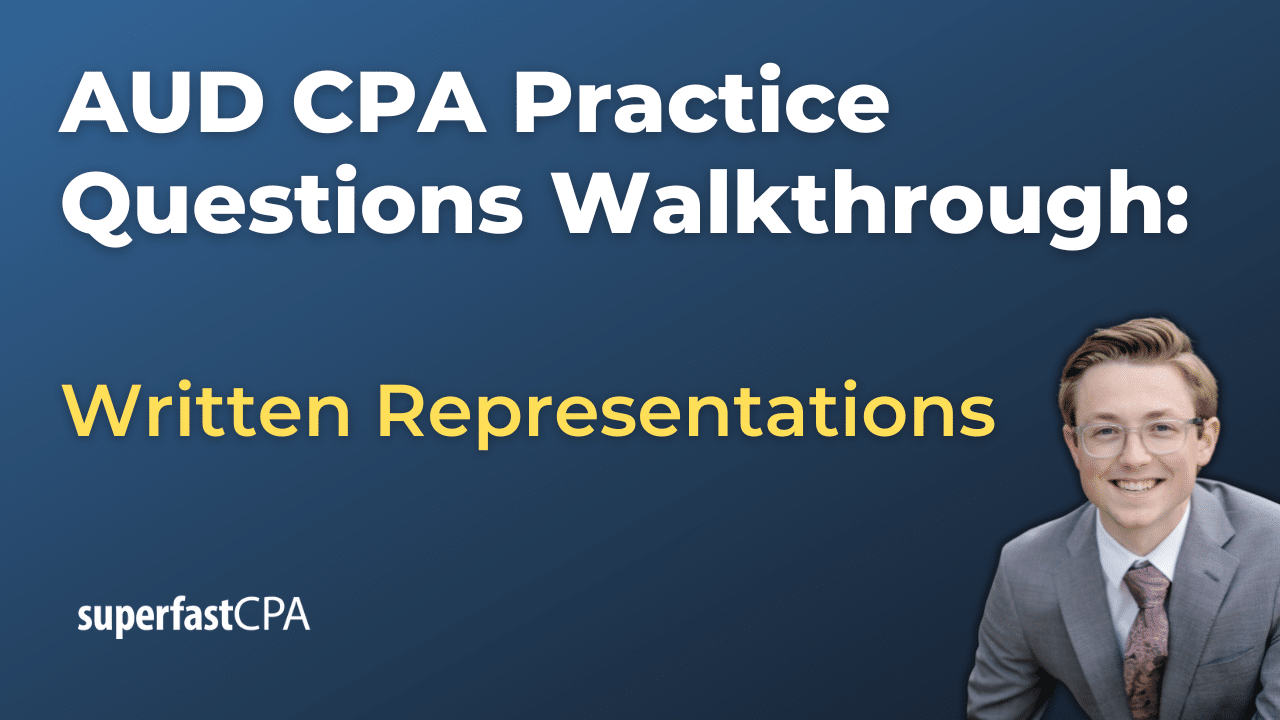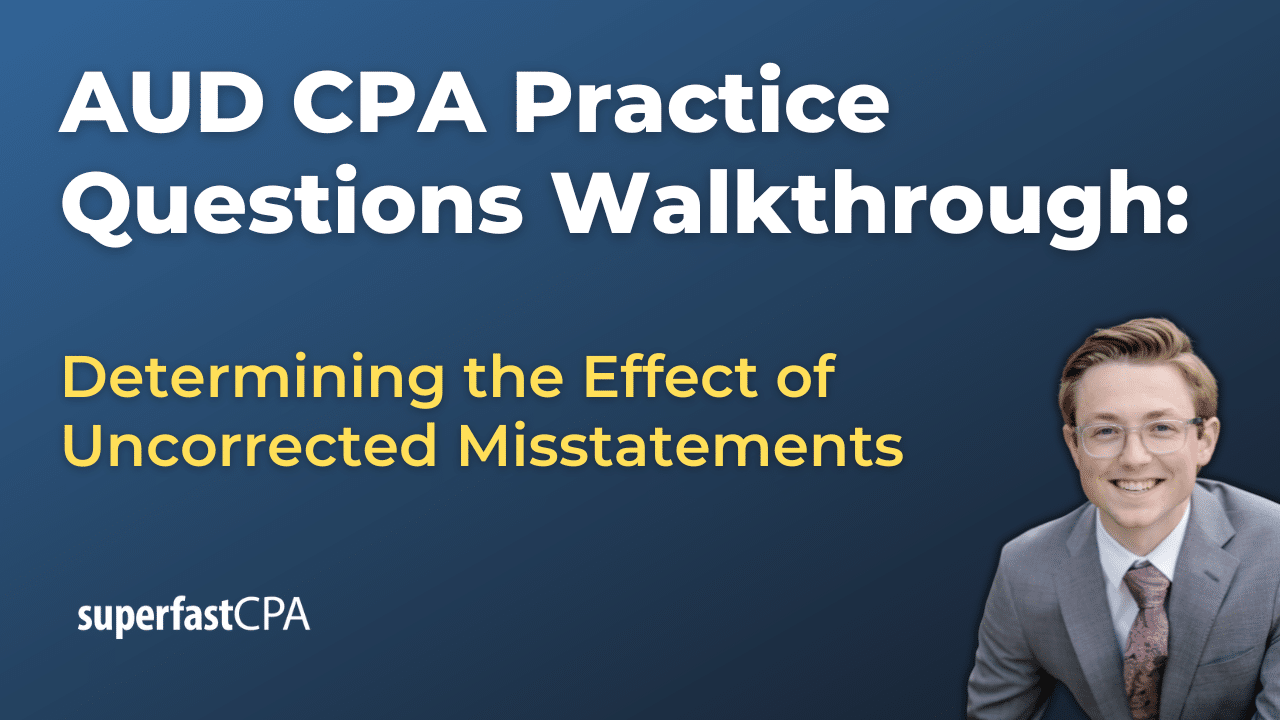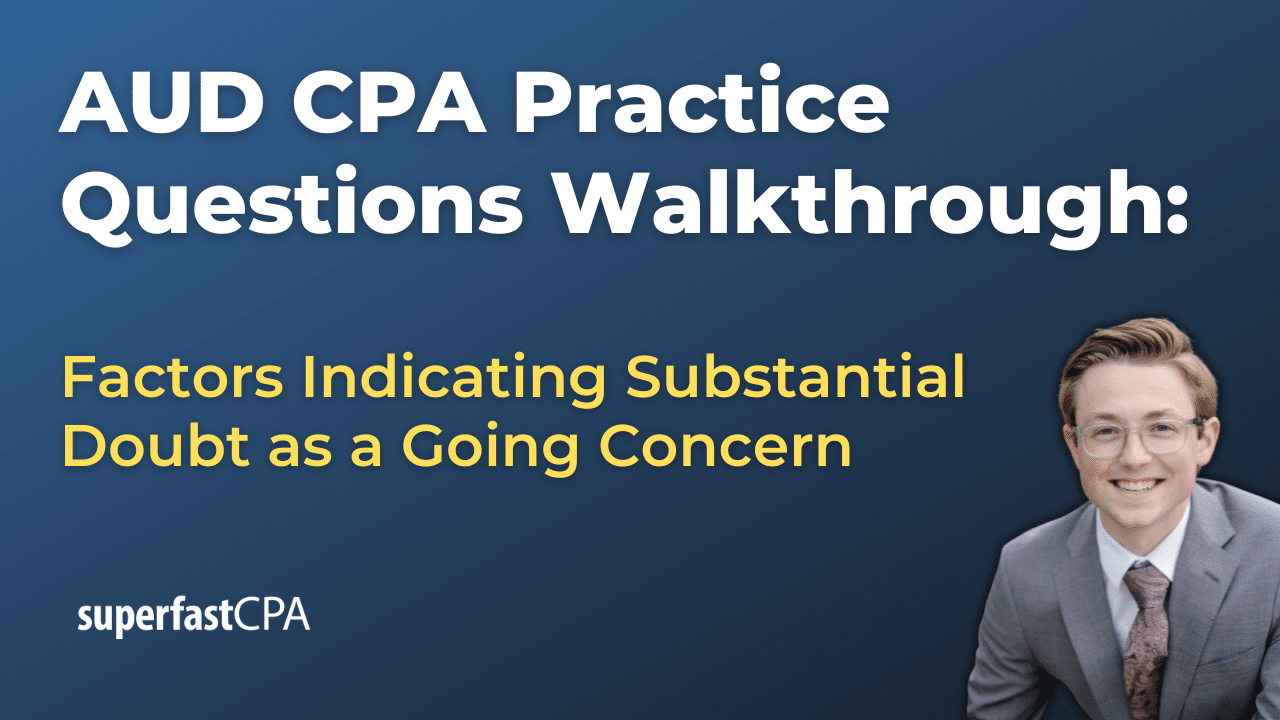In this video, we walk through 5 AUD practice questions teaching about factors when forming an audit opinion. These questions are from AUD content area 4 on the AICPA CPA exam blueprints: Forming Conclusions and Reporting
The best way to use this video is to pause each time we get to a new question in the video, and then make your own attempt at the question before watching us go through it.
Also be sure to watch one of our free webinars on the 6 “key ingredients” to an extremely effective & efficient CPA study process here…
Factors when Forming an Audit Opinion
Before expressing an audit opinion, an auditor must evaluate several key factors to determine whether the financial statements are presented fairly, in all material respects, in accordance with the applicable financial reporting framework. These considerations form the foundation of a sound and defensible audit opinion. The following summarizes the principal areas of focus:
Compliance with the Applicable Financial Reporting Framework
The auditor must assess whether the financial statements have been prepared in accordance with the relevant financial reporting framework (e.g., U.S. GAAP or IFRS). This involves evaluating the appropriateness and consistent application of accounting policies, the adequacy of financial statement disclosures, and whether the financial statements present the entity’s financial position, results of operations, and cash flows in a manner that aligns with the requirements of the framework.
For example, if the reporting entity uses the term “reserves” instead of “retained earnings” under U.S. GAAP, the auditor must consider whether this terminology could mislead users or conflict with the framework’s terminology.
Sufficiency and Appropriateness of Audit Evidence
The auditor is required to obtain sufficient appropriate audit evidence to support the audit opinion. “Sufficiency” refers to the quantity of evidence, while “appropriateness” relates to its relevance and reliability. The nature and extent of procedures performed, as well as the quality of the evidence obtained, directly impact the auditor’s ability to form a reasonable basis for the opinion.
For instance, in verifying revenue recognition, the auditor may examine contracts, invoices, and related cash receipts. If documentation is incomplete or internally inconsistent, the auditor may conclude that additional procedures are necessary to obtain appropriate evidence.
Compliance with Applicable Auditing Standards
An audit must be conducted in accordance with the appropriate auditing standards, such as the Generally Accepted Auditing Standards (GAAS) for private entities in the United States. These standards provide the framework for planning and performing the audit, evaluating audit evidence, and ensuring compliance with ethical and professional obligations.
Ensuring that the audit engagement complies with the correct standards is essential, as it directly supports the credibility and reliability of the auditor’s work and final opinion.
Appropriateness of Financial Statement Terminology
The auditor must assess whether the terminology used in the financial statements is clear, accurate, and appropriate within the context of the applicable financial reporting framework. Inappropriate or nonstandard terminology may cause confusion or misrepresent the nature of financial statement items.
For example, referring to a line item as “investment fund” without a clear definition or supporting disclosure may lead users to draw incorrect conclusions about the nature or liquidity of the asset.
Consideration of Comparative Financial Information
When an entity presents comparative financial statements, and the auditor is engaged to express an opinion on multiple periods, the auditor must obtain sufficient appropriate evidence for each period presented. This requirement applies even if a prior-period audit was conducted by a different auditor or under a separate engagement.
For instance, if financial statements for Years 8 and 9 are presented and the auditor is asked to express an opinion on both, they must ensure that audit evidence exists to support both years, and must reperform procedures if necessary.
By evaluating these factors, the auditor ensures that the audit opinion is based on a thorough and appropriate foundation. These considerations also help protect users of the financial statements by promoting transparency, consistency, and alignment with applicable standards and frameworks.

